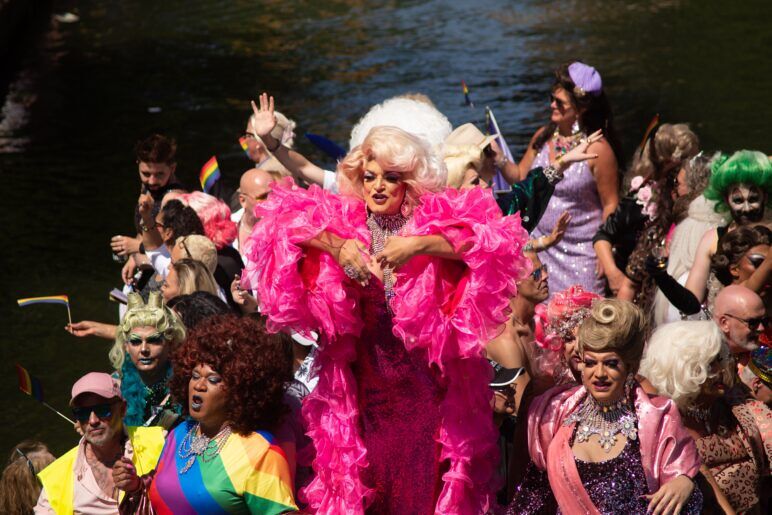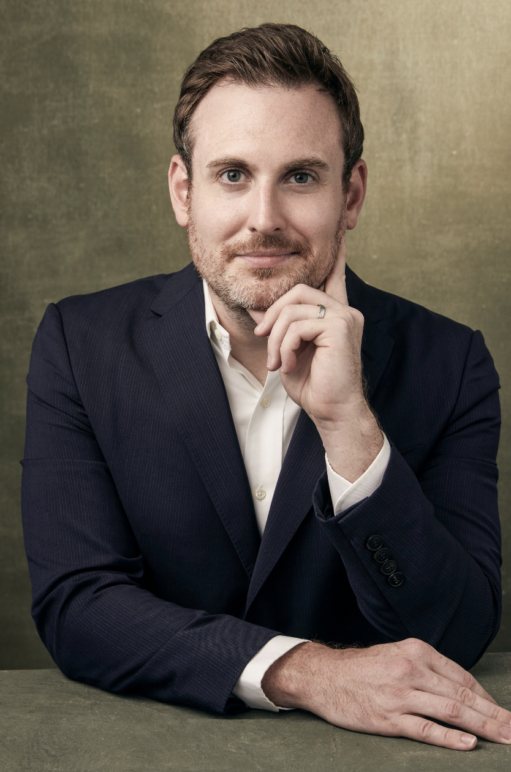“The Drag Queen Test” can help you decide where to travel in Trump’s America
How does your next planned vacation destination in America measure up?

Historically, drag queens have always had the power to check a b*tch, so it’s no surprise they might play a key role in figuring out whether your city is LGBTQ-friendly. As Donald Trump, a 34 felony convicted sexual abuser and fraudster, regains control of America, queer travelers might reconsider which parts of the nation they feel comfortable visiting.
If Meta revising their hate speech guidelines to allow queerness to be equated to a mental disorder is any indication, bigotry breeds bigotry. But queer wanderlust lives on regardless of the party in the White House! According to urbanist and social entrepreneur Nicholas Lalla, you don’t need to read your next destination to filth to know if it’s safe. Dubbed “The Drag Queen Test,” he developed a framework for his new book Reinventing the Heartland to measure whether a city fosters true inclusion and creativity.
GayCities spoke with Lalla to explore why the state of drag queens in a city reflects if it’s a desirable place to visit. “I work with cities to build inclusive and resilient innovation economies,” he says. “The outcomes that I seek through my work are ultimately creating good paying jobs for a wide range of people and making sure that everybody has access to the skills and education and credentialing and venture capital and mentoring and other entrepreneurial support to participate and to thrive in today’s economy.”
Pack your bags, we’re going on an adventure
Subscribe to our weekly newsletter for the best LGBTQ+ travel guides, stories, and more.
Subscribe to our Newsletter today

Ironically, Lalla’s entrepreneurial calling emerged during the turbulent years of the first Trump presidency and the pandemic. “It kind of shattered my understanding of America,” he says. “I was living in my coastal elite bubble, unaware of the urban-rural fracture in the country—that too many people aren’t getting the jobs they need to pay their bills, raise their families, and support themselves. Add to that the political polarization.”
To merge entrepreneurship with inclusivity in the tech economy, he founded Tulsa Innovation Labs in 2020, an organization deploying over $200 million in capital to drive growth in northeast Oklahoma. What does this have to do with drag queens, you might ask? Lalla is releasing his book to inspire rural cities to harness their resources and cultivate their versions of Silicon Valley.
“Research shows a correlation between economic prosperity and the concentration of queer communities, validating the broader theory that diverse and inclusive communities are key contributors to and indicators of economic vitality,” says Lalla.
As part of this approach, he encourages people to evaluate their city using “The Drag Queen Test,” which poses four simple questions.
- Does your city or state have laws restricting drag queens? (If no, plus 1 point)
- Does your city have drag brunches occurring on any given weekend? (If yes, plus 1 point)
- Does your city have multiple bars or performance centers dedicated to the LGBTQ+ community? (If yes, plus 1 point)
- Has your city sent a contestant to RuPaul’s Drag Race? (If yes, plus 1 point)
So, how did your city fare? Or better yet, dear reader with the queer travel bug, how does your next planned destination in the US measure up?
Lalla explains that it’s about much more than just drag queens. Areas with large gay populations tend to have a higher concentration of cultural assets. Think clubs, bars, restaurants, and theaters; all contribute to a place’s desirability. The “tolerance or open culture premium” reflects the inclusiveness of a community and its appeal.
In other words, more inclusive places mean that more people feel safe, and more [queer] people want to live there. “All of this together creates a cycle of asset building locally, as well as positive feedback loops that attract more investment and more people, which leads to urban development,” Lalla argues.
The author describes The Drag Queen Test as a fun piece of pop urbanism that addresses critical issues: every city should embrace its LGBTQ+ community as an integral part of its economic lifeblood and future.
Despite one of the most divisive presidents in history preparing to take the helm of politics for a second term, city leaders still have the power to shape their legacies. Queer travelers, in turn, have the right to choose where they spend their dollars.
“In the book, I argue that drag queens are economic actors who create jobs and that minoritized people, more broadly, must be recognized as important contributors to local economies,” says Lalla. “They need to be included.”
Join the GayCities newsletter for weekly updates on the best LGBTQ+ destinations and events—nearby and around the world.

 Mark
Mark 





